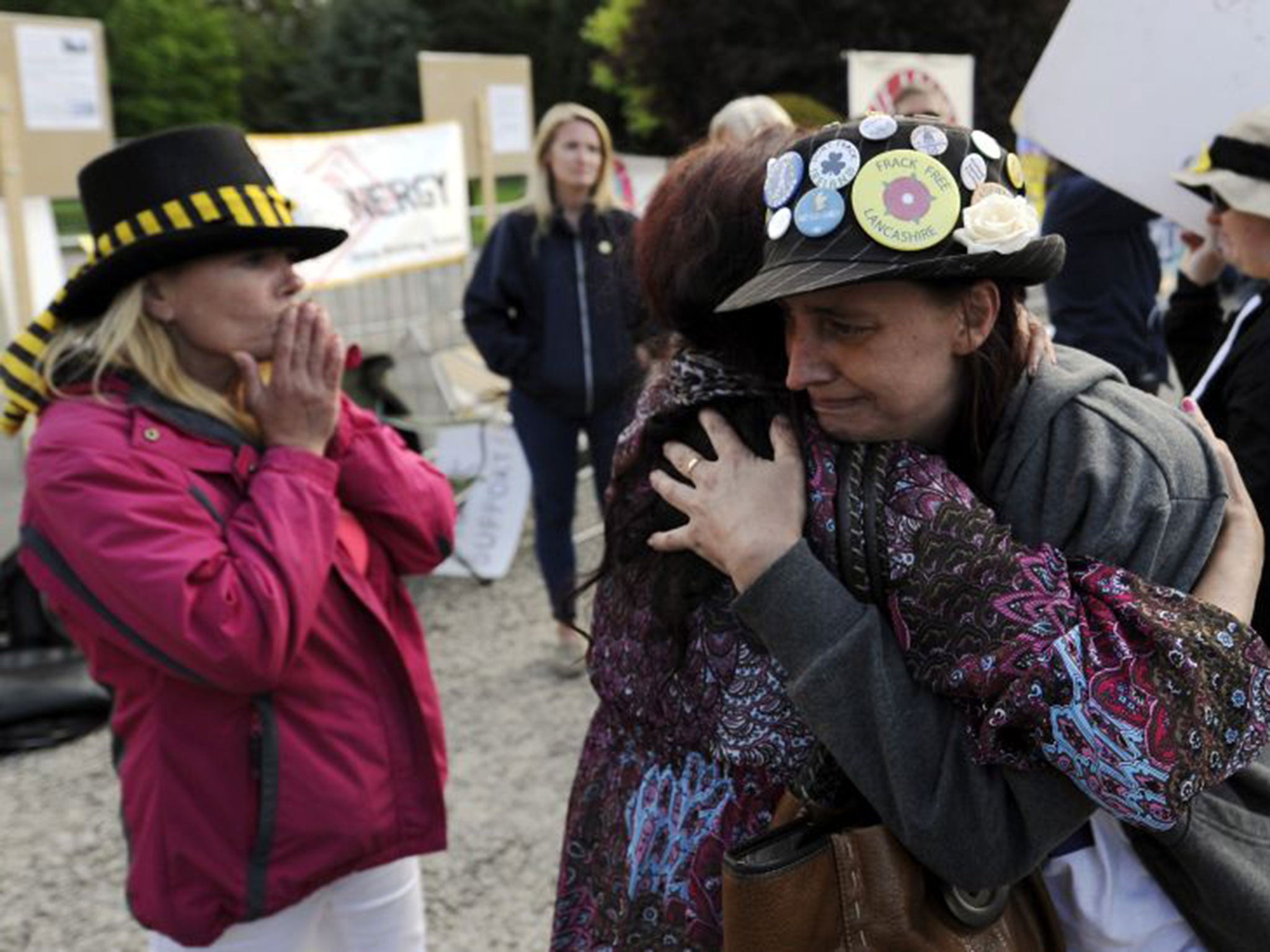Fracking in Yorkshire: What makes it so controversial? Why is the Government going ahead anyway?
The big questions: A Conservative-led council in North Yorkshire has approved the first UK fracking operation for five years. Friends of the Earth says it is now considering legal action - so what are the objections to the practice?

Your support helps us to tell the story
From reproductive rights to climate change to Big Tech, The Independent is on the ground when the story is developing. Whether it's investigating the financials of Elon Musk's pro-Trump PAC or producing our latest documentary, 'The A Word', which shines a light on the American women fighting for reproductive rights, we know how important it is to parse out the facts from the messaging.
At such a critical moment in US history, we need reporters on the ground. Your donation allows us to keep sending journalists to speak to both sides of the story.
The Independent is trusted by Americans across the entire political spectrum. And unlike many other quality news outlets, we choose not to lock Americans out of our reporting and analysis with paywalls. We believe quality journalism should be available to everyone, paid for by those who can afford it.
Your support makes all the difference.Why are we asking this now?
Controversial plans to start fracking in North Yorkshire have been given the go-ahead despite fierce opposition.
The Government could now face legal action, after protesters said the decision "opened the floodgates for every fracking company ... to bring about the industrialisation and destruction" of large areas of the countryside.
What is fracking?
More properly known as hydraulic fracturing, fracking is a process in which liquid is pumped deep underground at high pressure to fracture shale rock and release gas or oil trapped within it.
How much potential is there for developing shale gas and oil?
Assessments by the British Geological Survey suggest there are an estimated 1,300 trillion cubic feet of shale gas resources in the Bowland Shale which stretches across northern England.
There are "modest" shale gas and oil resources in Scotland, with an estimated 80 trillion cubic feet in the Midland Valley and an estimated 6 billion barrels of shale oil in the area which stretches across Scotland and includes Glasgow and Edinburgh.
And there is an estimated 4.4 billion barrels of shale oil in the Weald Basin in southern England.
But it is not known how much can be extracted, with exploitable reserves thought to be much lower than the total estimated oil and gas.
Why is fracking controversial?
The process has been mired in controversy since it hit the headlines in 2011 for causing two minor earthquakes in Lancashire, prompting a temporary ban on fracking in the UK.
The ban was later lifted, with controls put in place to prevent tremors, but fracking continues to attract opponents who fear it can also cause water contamination, noise and traffic pollution.
Environmentalists also warn that pursuing new sources of gas - a fossil fuel - is not compatible with efforts to tackle climate change, and that the focus should be on developing cleaner sources of energy such as renewables.
Why is it backed by the Government?
Ministers believe the experience of the US, where shale gas has been widely exploited, shows it could boost tax revenues, create jobs, reduce reliance on energy imports and bring down household fuel bills, although experts have questioned whether it would have any impact on energy prices.
The Government sees gas as key to future energy supplies as it bids to phase out the most polluting electricity source, coal, by 2025, and has said it is going "all out for shale", with tax breaks and community payments to get the industry going.
What is happening in Yorkshire?
North Yorkshire County Council has backed an application by UK firm Third Energy to frack for shale gas at its existing drilling site near the village of Kirby Misperton, between Malton and Pickering, in North Yorkshire. It is the first council to green light fracking in the UK.
Where else has fracking been pursued?
Lancashire County Council turned down shale gas company Cuadrilla's planning application for exploratory drilling and fracking at two sites near Preston, in Lancashire, last June.
The applications have gone to a public inquiry which is due to put its recommendations to the Government by early July.
In 2014, Celtique Energie saw its application to drill a temporary well to test for oil and gas in the South Downs National Park, near the village of Fernhurst, West Sussex, turned down.
The refusal came after West Sussex County Council rejected a bid by Celtique for exploration near Wisborough Green, a conservation area just outside the South Downs National Park, the first time a council rejected a planning application from a shale firm.
Protesters stopped Cuadrilla drilling a test site in the West Sussex village of Balcombe in summer 2013.
In Scotland, a moratorium is in place against fracking.
Join our commenting forum
Join thought-provoking conversations, follow other Independent readers and see their replies
Comments